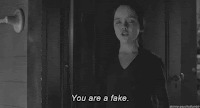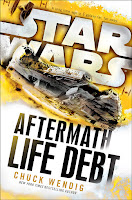Hey, folks. Sorry about last week—I had, alas, a family emergency I had to fly back east for, and there just wasn’t time to get a ranty blog post put together. So, now that I’m back, I thought I’d give you this for now and return to our usual semi-useful writing stuff on Thursday…
As I have in the past, it’s time for me to toss out a few more titles and names for you. Essentially, these are a bunch of books I really wish I could say I wrote. They’re not in any order, and I don’t even think they all came out this year, but if you’re looking for something new and different for somebody (or for yourself), it’s going to be tough to go wrong with any of these. In fact, you may have heard me mention some of them before…
As before, I’ve put links to a few of them, but you can also just go to your local bookstore. You may spend an extra buck or two, but you’ll feel better about yourself in the long run…
 The Unnoticeables/The Empty Ones by Robert Brockway– This is a fantastic, twisted little series about punk rock and stuntwomen and angels. It manages to swing back and forth between damned funny and seriously unnerving, sometimes on the same page. The first book works as a stand-alone, which is why I was stunned when he pulled off the second one.
The Unnoticeables/The Empty Ones by Robert Brockway– This is a fantastic, twisted little series about punk rock and stuntwomen and angels. It manages to swing back and forth between damned funny and seriously unnerving, sometimes on the same page. The first book works as a stand-alone, which is why I was stunned when he pulled off the second one.Experimental Film by Gemma Files—If someone you know is a horror fan, they’re going to love this book. If they also happen to be a film fan (as in, the process of filmmaking), this is going to be their new favorite book. It’s about a film student who starts researching one of the early pioneers of filmmaking in Canada, a woman who had some very eerie subject matter. This is one of the very few books I’ve read in recent years that freaked me out and actually made me feel nervous about shutting lights off at night. Seriously.
Rise of Io by Wesley Chu—If you know his Taobooks, this is the first of a new series set in the same universe. Although now things are flipped—Ella is a smart, savvy street-urchin in a future-shantytown who finds herself sharing headspace with one of the most incompetent Quaslings on Earth. It’s got action, humor, a touch of romance, some political intrigue—it’s just fantastic and a beautifully smooth read.
 Anamnesis by Eloise Knapp—This overlooked gem is half identity crisis, half biomedical thriller. Ethan’s a low-level drug dealer whose life began a few years ago when he woke up on a beach with full amnesia. He stumbles across the new thing hitting the streets—a drug that erases recent memories—and feels compelled to help people affected by it. Now imagine every creepy thing you could do with that drug… Wonderful character stuff with a creepy-as-hell plot
Anamnesis by Eloise Knapp—This overlooked gem is half identity crisis, half biomedical thriller. Ethan’s a low-level drug dealer whose life began a few years ago when he woke up on a beach with full amnesia. He stumbles across the new thing hitting the streets—a drug that erases recent memories—and feels compelled to help people affected by it. Now imagine every creepy thing you could do with that drug… Wonderful character stuff with a creepy-as-hell plotInvasive by Chuck Wendig—I’m sure you’ve heard about Wendig’s Star Wars books, and if that’s your thing you should definitely check those out (they’re fantastic). Invasive is for everyone, though. Unless you have a thing about bugs. And if you don’t now, you will by the end of this. Hannah’s a brilliant character, and the premise is skin-crawling.
The Voodoo Killings by Kristi Charish—This is another one I got an early peek at, and then I was kind of annoyed because I couldn’t talk to anybody about it for another four or five months (and now I’m waiting for her to finish book two so I can whine and plead to see that one early). This book takes zombies back to their voodoo roots, and imagines a world where the supernatural is real, publicly known, and so heavily regulated that our main-character, sorceress Kincaid Strange, has to pay the bills by summoning up dead rock stars for frat parties. And then an illegal zombie shows up in her neighborhood…
 Panacea by F. Paul Wilson—If all goes well, this book is the start of a fantastic ‘80s homage series. This one starts with a simple premise—what if there was a substance that could cure anything? And then think of all the different reasons people might be searching for it. It also has, hands down, one of the most horrific death scenes I’ve read in years. So there’s that…
Panacea by F. Paul Wilson—If all goes well, this book is the start of a fantastic ‘80s homage series. This one starts with a simple premise—what if there was a substance that could cure anything? And then think of all the different reasons people might be searching for it. It also has, hands down, one of the most horrific death scenes I’ve read in years. So there’s that…The Crooked God Machine by Autumn Christian– Do you like Ray Bradbury? The Addams Family? Small town America? Dystopia? If you can answer yes to any of these, you’ll love this story of the life of Charles, his family, friends, and the girls he falls in love with. It’s dark and beautiful and one of my absolute favorite things I read this year.
Made To Kill by Adam Christopher—This is a noir detective novel about a robot assassin, Ray Electromatic, in 1960s Hollywood. And if I need to say any more than that to make you pick up this book, you are dead to me. Seriously.
by Georgia Dunn—If you or someone you know is a cat lover, you’ll love this little comic strip about a cat news team as they report on the odd happenings around their home and the bizarre behavior of “the people.” Plus, Georgia just got the strip syndicated—she’ll be in your local paper soon, so buy the book now so you can look all in-the-know and cool before everyone else jumps on the bandwagon…
 The Last Adventure of Constance Verity by A. Lee Martinez—I just finished this one a few days ago on a plane (it had been on my Kindle for a while) and I absolutely love it. A young child, Constance was blessed (or cursed) to have a life of action and adventure. Now, after over two decades of fighting monsters, cults, ninjas, clones, and killer robots—having stopped wars and saved the world countless times—she just really, desperately wants to have a normal, boring life. This book is to the action/adventure genre what Shaun of the Dead was to zombies.
The Last Adventure of Constance Verity by A. Lee Martinez—I just finished this one a few days ago on a plane (it had been on my Kindle for a while) and I absolutely love it. A young child, Constance was blessed (or cursed) to have a life of action and adventure. Now, after over two decades of fighting monsters, cults, ninjas, clones, and killer robots—having stopped wars and saved the world countless times—she just really, desperately wants to have a normal, boring life. This book is to the action/adventure genre what Shaun of the Dead was to zombies. And there you have it. Eleven books I’ve really loved. Please check ‘em out, or feel free to mention anything I’ve overlooked down below.
Next time, long overdue… I’ll be shouting at you.
Until then, go write.
And maybe do some Christmas shopping and pick up a few books.






